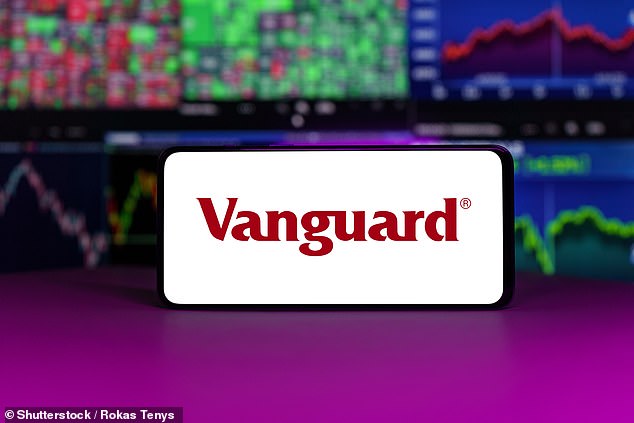I'm a novice investor with £5k in Vanguard and its new fees seem expensive - should I move my money?
Products featured in this article are independently selected by This is Money's specialist journalists. If you open an account using links which have an asterisk, This is Money will earn an affiliate commission. We do not allow this to affect our editorial independence.
I used Vanguard to invest in its Lifestrategy 80 fund. I have around £5,000 invested as I started this year, but I love the product and simplicity of it.
However, having seen the fee changes written about on This is Money and the introduction of a minimum amount, should I now be looking to move my stocks and shares Isa elsewhere?
Trading 212 seems good, as does InvestEngine, but I'm not sure which ETFs to invest in as this was all taken care of with Vanguard.
Any help on where to start would be greatly appreciated. I usually have a high-risk approach due to the time between now and retirement, for which I am mainly saving. M.C, via email

Shake up: Vanguard has introduced a new £4 monthly fee for those with less than £32,000
Harvey Dorset, of This is Money, replies: Vanguard's fee shake-up came out of the blue and will undoubtedly have left many investors - especially ones at the start of their investing journey - questioning whether it is still the best spot for their cash.
The fund manager, which currently charges 0.15 per cent on any balance, capped at £375 per year, told investors last week that it will begin charging monthly from January.
The new £4 per month fee will be applicable to Sipp, Isa and general account holders who have a balance of less than £32,000.
For example, a client with £20,000 in their account will see their fees rise from £30 per year to £48.
Vanguard said the new fees are necessary to help it 'cover the rising cost of serving our clients'.
Steve Nelson, insight director, the LangCat, said: 'The Vanguard change is an unsurprising one.
'Most pricing changes we've seen recently are a result of marginal changes around the edges as opposed to wholesale changes to fee models.
'Vanguard is clearly protecting profitability levels at the more modest portfolio sizes, which it is well within its right to do.'
'Investors need to take many factors into account when looking at how platforms compare on cost.
'The type of asset being invested in, how often you're likely to trade, which wrappers you use are all examples that can affect pricing – alongside sums invested.'
Despite the changes, for many Vanguard will still prove a cheap option than other platforms, though this largely depends on the amount you have invested.
This is highlighted in our comparison table at the bottom of the story and you can find more details in our regularly updated best stocks and shares Isas and investing platforms round-up.
For someone with around £5,000 invested, the new Vanguard fees will see them paying £40 more per year for the same service, pushing the cost well above multiple other platforms such as AJ Bell*, Bestinvest*, Hargreaves Lansdown* and, of course, Trading 212* and InvestEngine*.
However, Vanguard's service still comes cheaper than now-fellow subscription service Interactive Investor, which sets investors back £108 per year, while Fidelity, Halifax and Iweb also come out more expensive for those with smaller investment pots.
For those with investments above the £32,000 threshold, meaning that they are still subject to a 0.15 per cent fee instead of a monthly payment, Vanguard proves a cheap option, though not the cheapest.
With the maximum fee capped at £375 per year, an investor with a pot of £1,000,000 will still pay the same fee as someone with a quarter of that, whereas investors using Hargreaves Lansdown*, Close Brothers AM or Charles Stanley Direct would pay £3,000, £2,250 and £2,125 respectively.
This means that it is the smaller scale investors that are set to lose out as a result of Vanguard's fee change and could be considering shifting their investments elsewhere.
This feels like a shame as it has been a popular spot for newbie investors, who have been lured in by its low-fee mantra.
Given that Vanguard doesn't plan to introduce charges for withdrawing or transferring your funds from its platform, there is still an option to change platforms.
But it isn't easy to know where to move your investments, especially from a platform like Vanguard, which only offers Vanguard funds.
These are still accessible through other platforms, but they can come with a higher price tag.
Meanwhile, Trading 212* and InvestEngine* are the cheapest options, charging nothing to use their DIY services, but they also offer limited options.
These platforms only offer varying levels of ETF and equity investing and no access to funds.
Nelson said: 'Fees are only one part of the picture of course. Things like how much help you need picking investments, your impression and trust levels of a brand are some of the many other factors that will drive what is a personal choice based on your own set of circumstances.'
While similar in price to Vanguard's new fees, more comprehensive platforms like Bestinvest and Hargreaves Lansdown also offer a far wider array of funds than Vanguard, as well as equity investing.
This means that you are not limited to Vanguard-only funds, though these platforms do also offer Vanguard's products.
Bestinvest also offers a free financial coaching sessions.
Investing costs
The table below gives an example of investing costs for someone holding investment funds on some of the major platforms and making 12 ad hoc trades per year.



























































































































